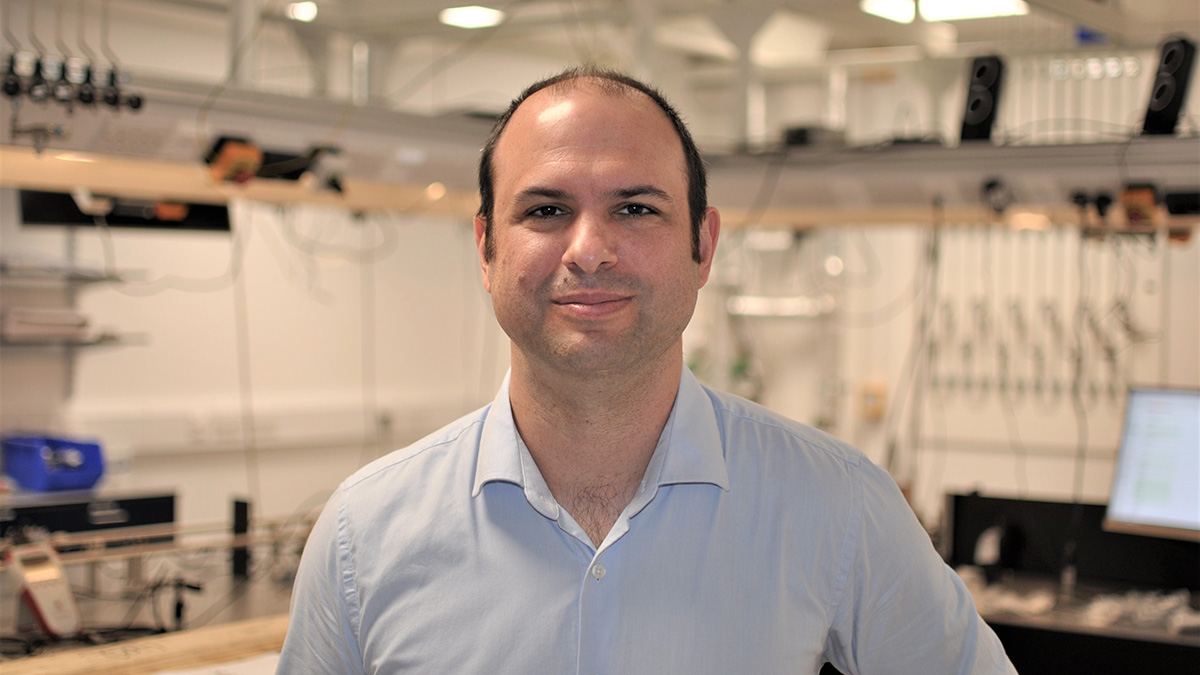Published:

A scientist at Heriot-Watt University who is pioneering new developments in the field of ultrafast laser systems has won the Institution of Engineering and Technology's (IET) most prestigious award – the £350,000 A F Harvey Engineering Research Prize.
John C. Travers, Professor of Physics at Heriot-Watt University and director of the Laboratory of Ultrafast Physics and Optics, will use the funding to attempt to miniaturise the technology he has developed, which creates new ultraviolet sources of light using ultrafast optical pulses that are a million billionth of a second in duration.
These new light sources could unlock far-reaching advances in science, healthcare and industry; for example, investigating new materials, developing new healthcare applications and innovating the manufacture of microchips used in computers and phones.
“We can generate ultraviolet light pulses in a way that's totally unique and hasn't been done before, and we're seeing enormous demand globally in developing this technology,” Professor Travers said.
The IET is a world-leading professional organisation for the global engineering and technology community, with more than 155,000 members in 148 countries. The prestigious A F Harvey Engineering Research Prize is awarded to a world-leading engineer from the fields of medical, microwave and radar or laser/optoelectronic engineering to enable them to continue further research.
We can generate ultraviolet light pulses in a way that's totally unique and hasn't been done before, and we're seeing enormous demand globally in developing this technology.
IET President, Professor Bob Cryan, said: “The IET's A F Harvey Engineering Research Prize supports the world's best scientists and engineers to advance their research. I'd like to congratulate John on receiving this prestigious prize – we are excited to support his pioneering work in creating new ultraviolet light sources with tailored properties, making significant contributions to ultrafast nonlinear optics, and enabling new applications.”
The technique Professor Travers has pioneered involves converting infrared light into a high-performing form of bright ultraviolet light. This is achieved by pulsing the infrared light into glass tubes filled with gases. The process allows Professor Travers and his team to customise the properties of the ultraviolet light beams – for example, their shape or duration – for use in different applications, such as laser machining.
“These short pulses of light let us do lots of things,” Professor Travers explains. “They let us observe fundamental physics and chemistry at very fast time scales, which is useful for very basic science – like understanding chemical reactions and physical processes in medicine and biology. They also let you modify material for machining and precision processing. And they can then be used to generate new sources, for example Xrays and electron pulses, which are useful in themselves for further applications.”
Tabletop-sized prototypes of Professor Travers' ultraviolet systems are already being used in healthcare and semiconductor settings. Now Professor Travers hopes to use the IET research prize funding to scale down the technology into a pocket-sized system.
“It's ambitious – but what I want to try and do with the funding is to shrink down this hollow fibre technology, so that we can actually generate these ultraviolet light sources on a small scale,” Professor Travers says. “This would massively expand the applications it could be used for.”
Professor Travers will present his work at a virtual keynote lecture, hosted by the IET, in March 2023. The event will be broadcast live and followed by a Q&A session with IET President, Professor Bob Cryan.
The A F Harvey Engineering Research Prize is named after Dr Arthur Frank Harvey, a respected electrical engineer who researched and developed microwaves and laser applications. He bequeathed a generous sum of money to the IET to further scientific research into the fields of radar and microwaves; lasers and optoelectronics and medical engineering.
For more information on the award, including the virtual lecture, visit: www.theiet.org/harvey.